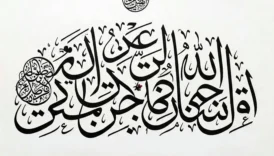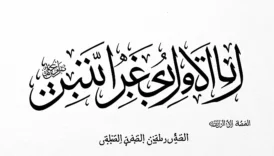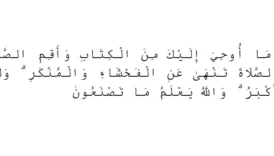The Forbidden Ritual to Bring Back a Spouse: Truths, Risks, and Correct Prayers
One of the toughest trials in human life is when distance comes between you and a loved one, and a home falls into silence. A person left with heartbreak and helplessness looks for a ray of hope in this difficult process. This search often leads one to spiritual paths, to the mysterious world of prayers and ancient knowledge. However, the reliability of every step taken on this path, every piece of information, and every whisper is of vital importance.
- The Forbidden Ritual to Bring Back a Spouse: Truths, Risks, and Correct Prayers
- The Forbidden Formula Whispered Among the People
- Behind the Curtain: The Great Danger of the Word "Tahut"
- From Darkness to Light: Authentic Prayers for Family Peace
- A Powerful Prayer for Love and Unification
- Final Word
- Bibliography
In this article, we will examine a formula known as the “forbidden ritual to bring back a spouse,” which is especially prevalent among the public and in the depths of the internet. Our aim is to reveal the truths behind such practices, the spiritual risks they carry, and most importantly, to present the luminous and authentic methods that can be resorted to instead of dark and uncertain paths. This is not an encouragement, but an informational and awareness-raising article.
The Forbidden Formula Whispered Among the People
In the search for a solution to the pain of separation, one can sometimes encounter simple but dangerous formulas. Here is one of them, an assertion passed down from generation to generation or by word of mouth:
“If a woman leaves her home and husband, if you perform 2 rak’ahs of prayer after the Isha prayer, then stand up and say ‘ya tahuta’ 400 times, the woman will return to her home.”
At first glance, this may seem like a quick solution offered to someone in despair. However, for those who know the basic principles of ancient disciplines like “Havas” and “Secret Knowledge,” one word in this formula is enough to set off all the alarm bells.
Behind the Curtain: The Great Danger of the Word “Tahut”
What makes this ritual “forbidden” and dangerous is not the practice itself, but the keyword within it: Tahut (Taghut).
In Islamic terminology, Tahut is an extremely negative and dark concept. In the Holy Qur’an, it refers to any entity, power, or system that is worshipped or claims divinity besides Allah. This includes Satan, idols, oppressive rulers, and any authority that rebels against the commands of Allah.
Therefore, calling upon an entity by saying “Ya Tahuta!” is not a prayer to Allah, but on the contrary, it is seeking help from a power that is His enemy and represents rebellion. This is not asking for spiritual help, but prying open the dark doors of the spiritual world and inviting unknown dangers.
Even in the authentic sources of secret knowledge and Havas literature, it is explained how grave the consequences of the slightest mistake, of mentioning a wrong name while working with servants or spiritual beings, can be. While one can turn to Allah with the most sublime names like the Ism-i Azam, pleading for help with a name that is a symbol of rebellion is no different from spiritual suicide.
From Darkness to Light: Authentic Prayers for Family Peace
Since that path is dark and dangerous, which one is luminous and safe? The answer is to turn only to Allah, the Lord of the worlds, with sincerity and the correct names. It is He alone who warms hearts to one another and brings together what is scattered.
The most correct way to increase love between spouses and find family peace is to take refuge in the beautiful names of Allah (Asma-ul Husna). Especially the names “Ya Wadud” (O, the Most Loving) and “Ya Jami” (O, the Gatherer) are like keys in this regard.
A Powerful Prayer for Love and Unification
The prayer shared below is an authentic supplication recommended by scholars, which can be recited with the intention of uniting hearts and removing coldness between them.
Arabic Script:
اَللّٰهُمَّ يَا وَدُودُ يَا وَدُودُ، يَا ذَا الْعَرْشِ الْمَجِيدِ، يَا مُبْدِئُ يَا مُعِيدُ، يَا فَعَّالٌ لِمَا يُرِيدُ، أَسْأَلُكَ بِنُورِ وَجْهِكَ الَّذِي مَلَأَ أَرْكَانَ عَرْشِكَ، وَأَسْأَلُكَ بِقُدْرَتِكَ الَّتِي قَدَرْتَ بِهَا عَلَى جَمِيعِ خَلْقِكَ، وَأَسْأَلُكَ بِرَحْمَتِكَ الَّتِي وَسِعَتْ كُلَّ شَيْءٍ، لَا إِلَهَ إِلَّا أَنْتَ، يَا مُغِيثُ أَغِثْنِي، أَنْ تُؤَلِّفَ بَيْنَ قَلْبِي وَقَلْبِ [Spouse’s Name Here].
Transliteration:
Allahumma yâ Wadûd, yâ Wadûd! Yâ dha’l-arshi’l-majîd! Yâ mubdi’u yâ mu’îd! Yâ fa’âlun limâ yurîd! As’aluka bi-nûri wajhika’l-ladhî mala’a arkâna arshika wa as’aluka bi-qudratika’l-latî qadarta bihâ alâ jamî’i khalqika wa as’aluka bi-rahmatika’l-latî wasi’at kulla shay’in. Lâ ilâha illâ anta. Yâ mughîth, aghithnî! An tu’allifa bayna qalbî wa qalbi [Spouse’s Name Here].
Meaning:
O Wadud, O Wadud! O Owner of the Glorious Throne! O Initiator, O Restorer! O Doer of what You will! I ask You by the light of Your Countenance which has filled the pillars of Your Throne, and I ask You by Your Power with which You have power over all Your creation, and I ask You by Your Mercy which has encompassed all things. There is no god but You. O Helper, help me! Unite my heart with the heart of [Spouse’s Name Here].
Final Word
Spirituality is like a bottomless ocean. The way to navigate this ocean safely is to always set the compass to the Qur’an and Sunnah, that is, to the luminous path of Allah and His Messenger. The dark and forbidden paths that appear before us in moments of despair and promise quick solutions are nothing more than a mirage, and their end is frustration.
The real solution lies in an ablution taken with a sincere tear, in two rak’ahs of prayer performed with humility in the middle of the night, and in a heartfelt prayer directed only to Allah. Remember, the only power that turns hearts and will bring broken homes back together is Allah, the Lord of the worlds.
Bibliography
- al-Buni, Ahmad ibn Ali. Shams al-Ma’arif al-Kubra. Beirut: al-Maktabat al-Thaqafiyya, 2007.
- Al-Ghazali, Imam. Ihya’ ‘Ulum al-Din (The States of the Heart). Trans. Sıtkı Gülle. Istanbul: Huzur Publishing, 2011.
- Yılmaz, H. Kâmil. Anahatlarıyla Tasavvuf ve Tarikatlar (Sufism and Tariqas in Outline). Istanbul: Ensar Publishing, 2012.





